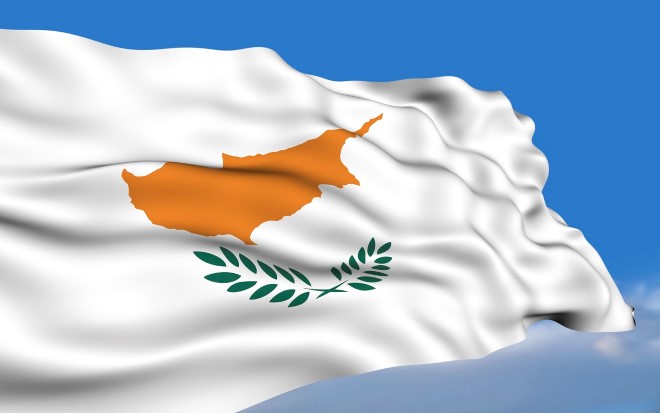Andreas Theophanous*
December 2016
The alternative proposal for the Cyprus problem
The narrative of the recent years was that any solution of the Cyprus problem based on a bizonal, bicommunal federation entails improvement of the status quo as well as economic benefits. This position is not substantiated. It is doubtful, if not impossible, for Cyprus to operate in the Eurozone with the implementation of the specific solution framework which is currently discussed. Serious concerns have already been expressed by various circles in Cyprus as well as in the EU and the IMF. In addition, such models which are based on ethno-nationalist pillars, usually lead to malfunction, frictions and frustrations. Bosnia and Lebanon are indeed indicative examples.
It is also important to understand that it is difficult, to say the least, for a solution that improves the status quo for the Greek-Cypriots to take place with the current stance of Turkey, which aims to push aside the Republic of Cyprus and to replace it with a new state entity. Furthermore, one of the risks involved in this is the protectorization of Cyprus by Turkey. In such a case Turkey will have a say in EU affairs via its influence on the new state of affairs in Cyprus after a solution on the basis of a bizonal bicommunal federation with political equality. We should be reminded that there has been a gradual alignment of the Greek Cypriot positions with the Turkish demands from 1974 until today.
It is also understood though that the status quo poses serious risks. But because most likely there will be a deterioration of the status quo with a solution based on a bizonal, bicommunal federation as discussed today, we must reassess the situation and focus on policy options which may facilitate the interested parties to overcome the deadlock in a constructive way. Indeed, it is important to have alternative approaches that rely on an evolutionary process with a specific roadmap.
The idea for an evolutionary approach is also supported by the fact that, in case of a solution along the lines discussed it will be extremely difficult, if not impossible, to move from one state of affairs to another in 24 hours. This is because there are separate narratives, experiences, perceptions, value-systems and different political, economic and social realities. The main pillars of such an evolutionary approach should be the following:[Σύμβολο][Σύμβολο]
- The occupied areas in the northern part of Cyprus should be turned into an EU Region under Turkish Cypriot administration with the immediate implementation of the acquis communautaire through the suspension of Protocol 10.
- Gradual return of territories under Greek Cypriot administration, gradual implementation of the four basic freedoms and gradual implementation of the obligations of the Turkish Cypriot community.
- Normalization of relations of the Republic of Cyprus with Turkey.
- Establishment of a roadmap for the next steps and guidelines for a federal constitution as a result of a synthesis: more specifically, it is essential to amend the 1960 constitution which is based on consociational democracy and introduce elements of an integrationalist federal model as well.
- It is also important for the EU to undertake its responsibilities in the harmonization process of the occupied territories of Cyprus with the acquis communautaire. Within this framework it is also essential to launch a process of internal political, social and economic convergence.
- Turkey must assume its own responsibilities as well. It should be remembered that when Turkey invaded Cyprus on July 20, 1974, it had put forward the position that its objectives were the restoration of the constitutional order of the Republic of Cyprus and the protection of the Turkish Cypriot community. Turkey should contribute toward this direction. The first steps should be the end of the ongoing colonization and the beginning of the withdrawal of the occupation troops.
- The Republic of Cyprus should move accordingly at all levels: among others, it is imperative to have a narrative and be able to promote it effectively.
- Any solution should be the outcome of a voluntary agreement between the two sides in Cyprus. Evidently, the evolutionary approach will give the time required for the gradual strengthening of relations between the two communities and the formulation of the concept of an integrationalist federal indivisible state. If this is not possible, other ways should be sought to ensure peace and security in the context of the participation of Cyprus in the EU that was ensured with its accession in 2004 including Protocol 10.
The forthcoming new round of negotiations in January 9-12, 2017 in Geneva, which aspires to culminate in a multilateral international conference, aiming at reaching a comprehensive agreement, will once more create difficulties in achieving a voluntary consensus which can assure a strong majority support on both sides. That is why it is essential to think outside the box. Even now we should seriously consider an alternative proposal deriving and utilizing fundamental principles from political economy, political science, history, sociology and the EU legal framework and also rely on the evolutionary process as suggested. Indeed with such an approach we may have an outcome which satisfies multiple interests and objectives.
[Σύμβολο]Andreas Theophanous is Professor of Political Economy and President of the Center for European and International Affairs, University of Nicosia.
[Σύμβολο][Σύμβολο]This specific proposal was finalized recently with the contribution of two Senior Associates of the Center, Soteris Kattos and Constantinos Mavroedis. See Policy Paper (in Greek) by Andreas Theophanous, Sotiris Kattos and Constantinos Mavroedis entitled “Bizonal Bicommunal Federation and the Alternative Proposal”, December 2016, 4/2016.











